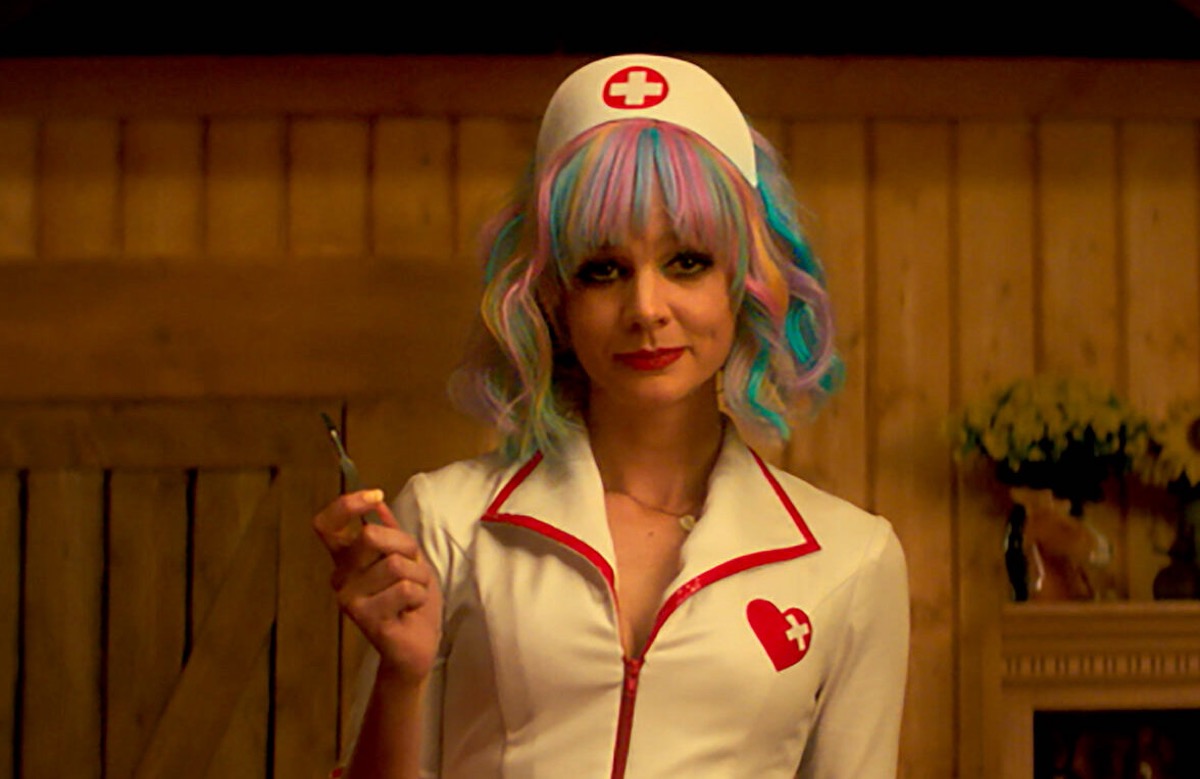Emerald Fennell Had a Different, Even Bleaker Ending in Mind for Promising Young Woman


**Major spoilers for Promising Young Woman ahead. MAJOR! Turn back now if you haven’t yet seen the film.**
Also, content warning for sexual assault, murder.
Emerald Fennell’s debut feature film Promising Young Woman has generated a lot of opinions. And that’s to be expected–this movie was never going to be for everyone and those who connected with it tend to feel really strongly. Possibly the most divisive element of the whole movie is it’s bleak as hell ending.
The film centers on Cassie (Carey Mulligan), who spends her weekends pretending to be drunk to the point of near unconsciousness to see if some kind fellow will help her get home and what they will do to her once they have. Without fail, those “nice guys” try to sexually assault her, at which point she reveals her sobriety, shames them for their behavior, and goes home to mark another tally in her journal.
Cassie does this as a way to avenge her friend Nina, who was raped by a classmate when the two were in medical school together. There’s no closure in this but it’s the life Cassie has chosen for herself.
If you’re reading this, I assume you’ve seen the movie (I warned you!) so you know that years after Nina’s assault and her subsequent suicide, Cassie finally gets to enact revenge on Al, the man who raped her friend (Chris Lowell). She crashes his bachelor party, drugs him, handcuffs him to the bed, and tries to get him to confess. Instead, he ends up killing her, smothering her with a pillow.
In a recent interview with Variety, Fennell says she originally had an ending in mind that was a “big, fuck you, cathartic ending” in which Cassie walks into that party defiantly, where she “is going to put on a sexy outfit and she’s going to kill a ton of guys!”
But Fennell never even wrote that ending. It wouldn’t work, she says, “because the moment Cassie is in that room, I realized that there is no way of honestly showing that. Because it’s not true. And it was important to me to play out as realistically as I could, what this would look like.”
“I cannot imagine being in a room with a man and threatening him where it plays out in any different way—no matter how much we want it to be the case.”
I’ve read quite a lot of criticism of Promising Young Woman that focuses on the unacknowledged danger Cassie puts herself in every time she goes home with a man. That’s entirely valid and Fennell apparently even shot a scene where Cassie has a bruise on her hand as an indication that at least one of these nights “had gone wrong.”
Personally, I didn’t mind this specific point. It felt to me like the audience was being asked to wilfully and even consciously suspend their disbelief to engage with Cassie’s pink-hued revenge fantasies, making it all the more tragic when reality crashes into her at the end.
“She knows she’s always putting herself in danger,” Mulligan told Variety, and in the case of Al’s bachelor party, “she knows that that’s a very, very strong possibility” that she might die. But to Cassie, “it’s worth the immense risk.”
As it turns out, the ending Fennell really wanted was way bleaker than the one we got. In the final film, Al and his best friend Joe (Max Greenfield) get rid of Cassie’s body and go on with Al’s wedding like nothing happened. But Cassie had left a note for her boss (Laverne Cox), sent evidence of some sort to Al’s former lawyer (Alfred Molina), and scheduled texts to be sent to her ex-boyfriend and Al’s friend Ryan (Bo Burnham).
As police swarm Al’s wedding reception, “Angel of the Morning” plays and we see Ryan get the texts: “Enjoy the wedding!” “Love, Cassie & Nina.” Winking emoji.
In Fennell’s ideal version of the script, the movie ends with the men burning Cassie’s body, with no final act of retribution.
Variety writes that “Fennell’s financiers balked, she said with a laugh: ‘They were, like, ‘Come on, we’re going to give you money to make this!’ But in my heart, I think that’s where it would have ended.'”
I totally understand why that ending would feel the most honest to Fennell. It might have been more realistic but it sure wouldn’t have been satisfying for us. Personally, I’m glad Cassie got the final laugh. It was dark but cathartic. What a very different movie that other version would have been.
(via Variety, image: Focus Features)
Want more stories like this? Become a subscriber and support the site!
—The Mary Sue has a strict comment policy that forbids, but is not limited to, personal insults toward anyone, hate speech, and trolling.—
Have a tip we should know? [email protected]
